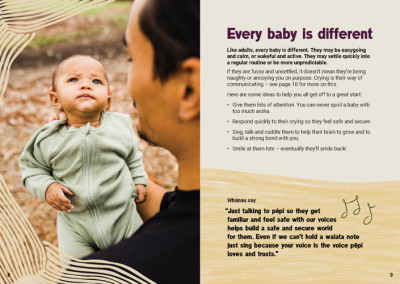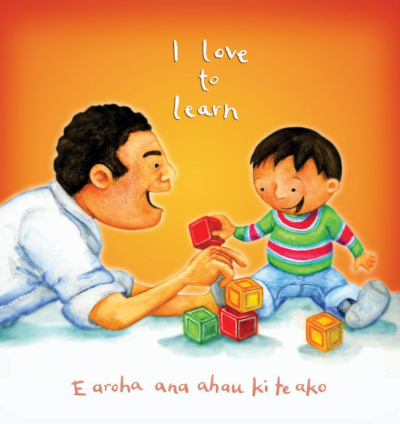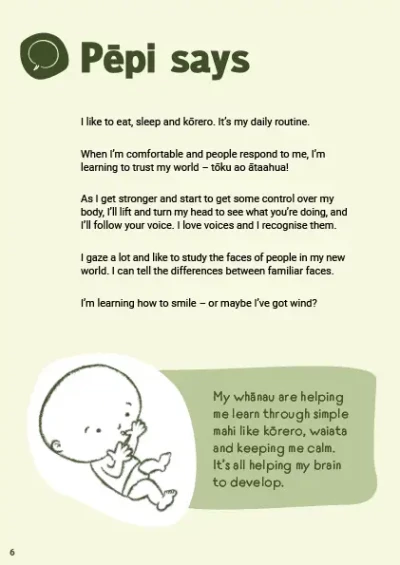
Making the most of care moments
Routine tasks provide great opportunities to stimulate the baby's 5 senses and help with their brain development.
Helping a baby’s brain development is not about some special ‘educational’ things that you have to do. A loving caregiver who is warm and attentive towards baby is perfect for helping a baby’s brain to grow.
Learning through the 5 senses
Pēpi learns through their senses by seeing, hearing, touching, smelling and tasting.
Ask whānau:
- What has your baby heard or seen today?
- What have they smelled or tasted?
- What kinds of touch have they experienced?
- What are the everyday things that you do to care for baby, for example, bathing, feeding, changing nappies, dressing?
We might think of these as just daily chores to get out of the way, or we can think of them as opportunities to ‘feed baby’s mind’ via their senses.
Building relationships – and baby’s brain
Encourage whānau to think about routine tasks. Focus them on bathing. Ask:
What senses are involved and what is baby experiencing and learning?
- Sight – What might baby see? The water, a flannel, a towel, a bath toy, a parent? The most important thing for pēpi to see is the attentive, smiling face of the person who’s bathing them.
- Hearing – What might baby hear? The sound of water, our voices as we talk about what’s happening, a squeaky toy, a bath song? Once again, it’s parents' voices, whether talking or singing, that pēpi will be most attracted to.
- Touch – What might baby feel? Warm water, hands, the flannel, soap, towel and maybe a lovely after-bath mirimiri /massage?
- Smell – What might baby smell? Soap, baby powder, baby oil or a parent's scent?
Let’s think about other care moments and how you can make the most of them.
Try an activity
Mirimiri - massage
Massage is a nice relaxing activity for both pēpi and mama. Gentle, firm stroking of baby’s skin stimulates baby’s nervous system and their growth and development.














